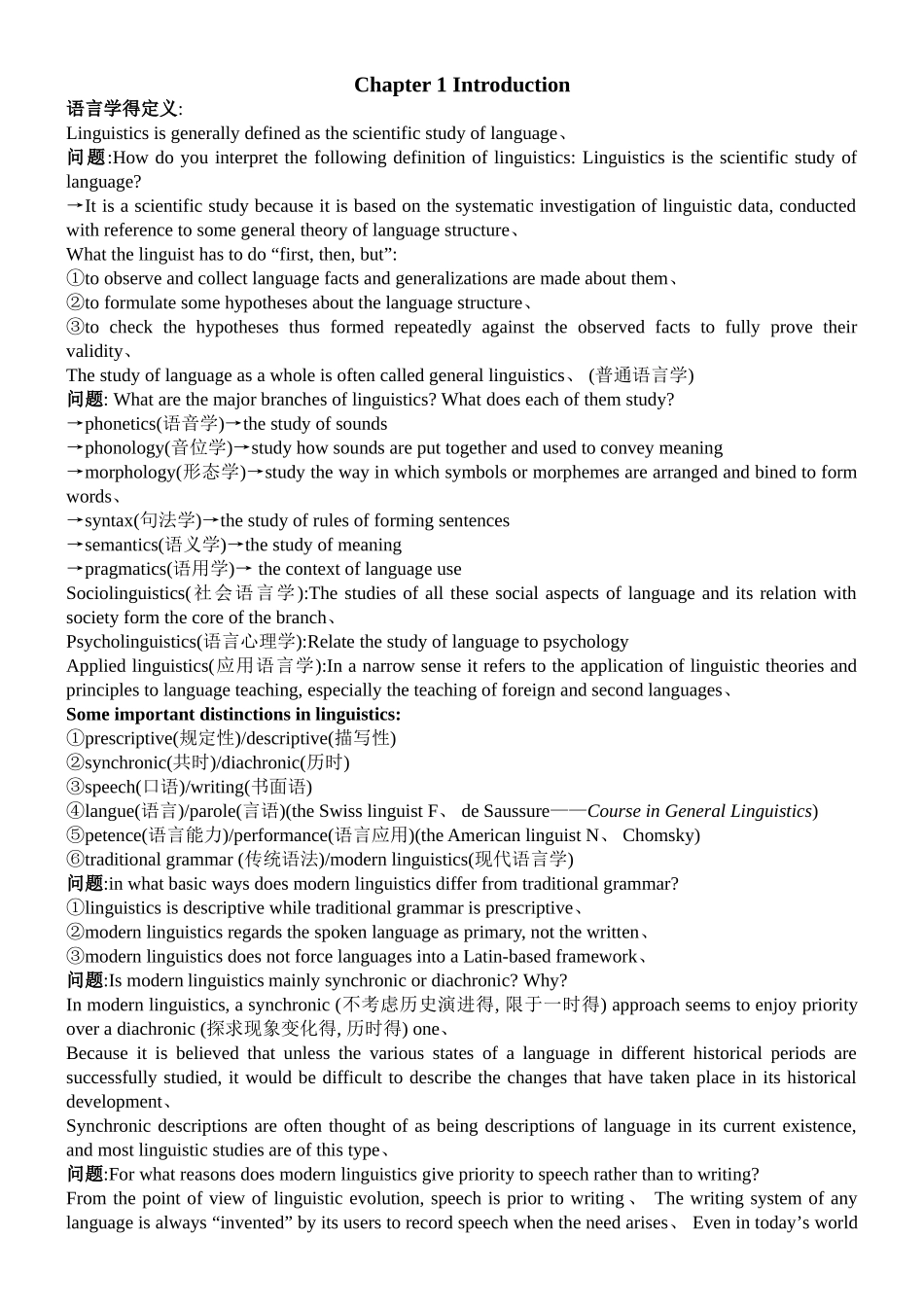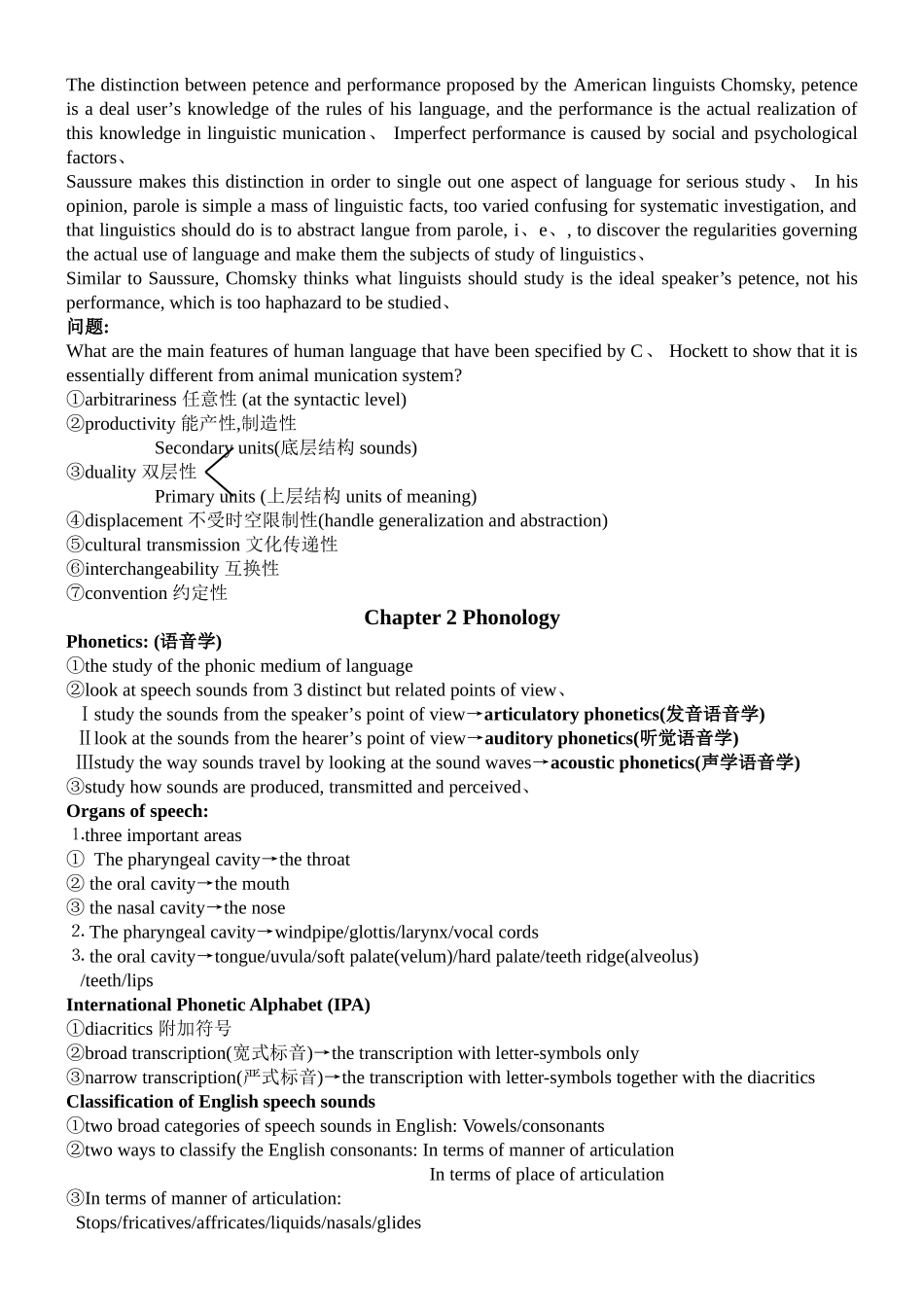Chapter 1 Introduction语言学得定义:Linguistics is generally defined as the scientific study of language、问题:How do you interpret the following definition of linguistics: Linguistics is the scientific study of language?→It is a scientific study because it is based on the systematic investigation of linguistic data, conducted with reference to some general theory of language structure、What the linguist has to do “first, then, but”:①to observe and collect language facts and generalizations are made about them、②to formulate some hypotheses about the language structure、③to check the hypotheses thus formed repeatedly against the observed facts to fully prove their validity、The study of language as a whole is often called general linguistics、 (普通语言学)问题: What are the major branches of linguistics? What does each of them study?→phonetics(语音学)→the study of sounds→phonology(音位学)→study how sounds are put together and used to convey meaning→morphology(形态学)→study the way in which symbols or morphemes are arranged and bined to form words、→syntax(句法学)→the study of rules of forming sentences→semantics(语义学)→the study of meaning→pragmatics(语用学)→ the context of language useSociolinguistics(社会语言学):The studies of all these social aspects of language and its relation with society form the core of the branch、Psycholinguistics(语言心理学):Relate the study of language to psychologyApplied linguistics(应用语言学):In a narrow sense it refers to the application of linguistic theories and principles to language teaching, especially the teaching of foreign and second languages、 Some important distinctions in linguistics:①prescriptive(规定性)/descriptive(描写性)②synchronic(共时)/diachronic(历时)③speech(口语)/writing(书面语)④...


